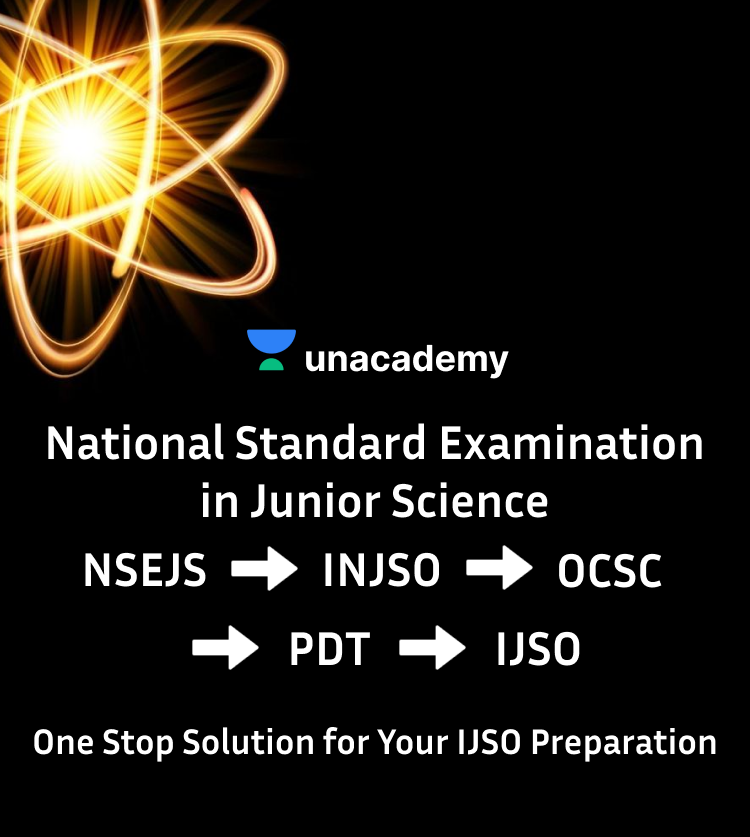National Standard Examination in Junior Science
It is organized by Indian Association of Physics Teachers (IAPT).
The NSEJS exam is based on objective type questions and are offered in English and Hindi.
The syllabus is broadly equivalent to up to Class X of the Central Board of Secondary Education (CBSE).
It has Age limit, which is changed every year. Students of class 8th, 9th, and a few of class 10th in age limit can appear for this examination.
The top 300 students from this stage qualify for the next round.
| Exam | NSEJS |
| Total number of Questions | 60 |
| Maximum Marks | 216 |
| Duration | 120 Minutes |
| Type of Questions | MCQs |
| Subject | Physics, Chemistry and Biology |
| Paper pattern | The question paper consists of 2 sections: Section A1 and Section A2 Section A1: Single correct type, comprises of 48 questions (16 each from P,C,B) Section A2: Multiple correct type, comprises of 12 questions (4 each from P, C, B) |
| Marking Scheme | Section A1: +3 for every correct answer, -1 for every wrong answer. Section A2: +6 marks if all correct alternatives are marked. There is no negative marking in section A2 |
| Medium | English and Hindi |
| Events | Dates |
| Start Date of Centre Registration | August 1, 2024 |
| Last Date of Centre Registration | August 20, 2024 |
| Start Date of Student Registration | August 21, 2024 |
| Last Date of Student Registration | September 14, 2024 |
| NSEJS 2024-25 Exam Date | November 24, 2024 ( 2:30pm to 4:30pm ) |
 Profile
Profile Settings
Settings Refer your friends
Refer your friends Sign out
Sign out










